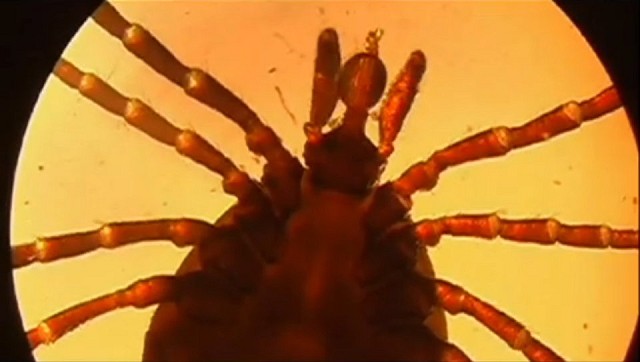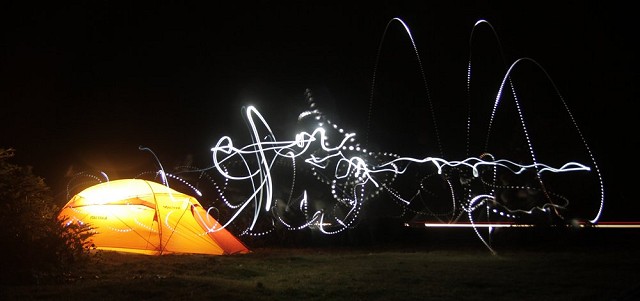
Nothing can ruin your day like a parasitic blood sucker, but is there anything good to be said for them? Heather Morning, Mountain Safety Advisor with the Mountaineering Council of Scotland, weighs the competing pros of the wee buggers.
The scourge of walkers, climbers and tourists alike, clouds of biting midges are one of Scotland's less attractive attractions. Ticks, too, have earned the enmity of anyone who has had to take the tweezers to remove that charming beast that loves to burrow its head in our skin and suck our lifeblood.
But in the interests of fairness, I've been doing some research to see if there is a positive side to these wee beasties. In a' head to head' battle, does the midge or the tick win on having the most positive attributes?
The Mighty Midge
Undoubtedly wins in terms of sheer numbers and provides a food source for a variety of plant and animal species. Pipistrelle bats and birds such as warblers and swifts, as well as our insectivorous plants sundew and butterwort, all dine out on a fair few midges. However, the numbers of midges caught by them is a miniscule fraction of the annual population. Probably the biggest claim to fame for the Scottish midge is its contribution to keeping the north and west of Scotland wild and beautiful – by putting people off living or even visiting there!
The Terrible Tick
Like the midge, the tick also provides an important role in the food chain. Ticks are a favourite snack for birds, who will often pick engorged ticks right off the body of the host animal. Ticks are also commonly used by ecologists as an indicator of an ecosystem's health. Because they rely on a variety of host animals (deer, sheep, small rodents etc) to thrive and reproduce, a reduction in the tick population will reflect a reduction in the 'host' population too. Ticks are opportunistic and quick to exploit weak, ill or old animals. If an already weak animal is infested with ticks it will weaken further, leading to death, so ticks play a role in ensuring only strong animals in a species survive and leave more resources for the fit, healthy animals.
Make your own mind up on which of the beasties wins: you might as well – it's the only fun you'll get out of them, because both ticks and midges can be a real problem in the great outdoors.
Midges win out on nuisance value, but tick bites are linked to an alarming rise in cases of Lyme Disease, which can have serious long-term effects on people's lives.
Here's a short MCofS video about ticks, how to deal with them and how to avoid them:
And further information on the mighty midge can be found on the SNH website.











Comments